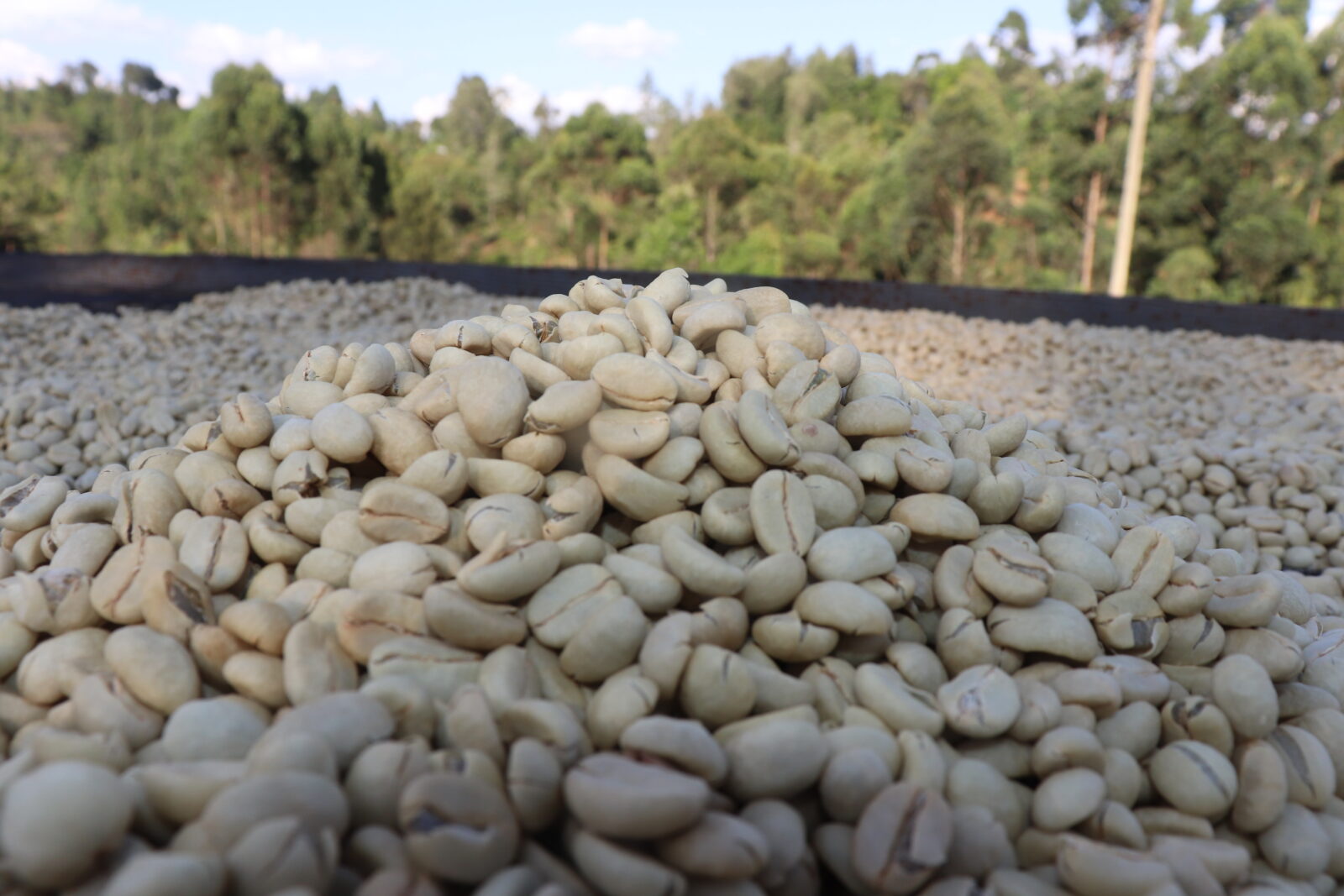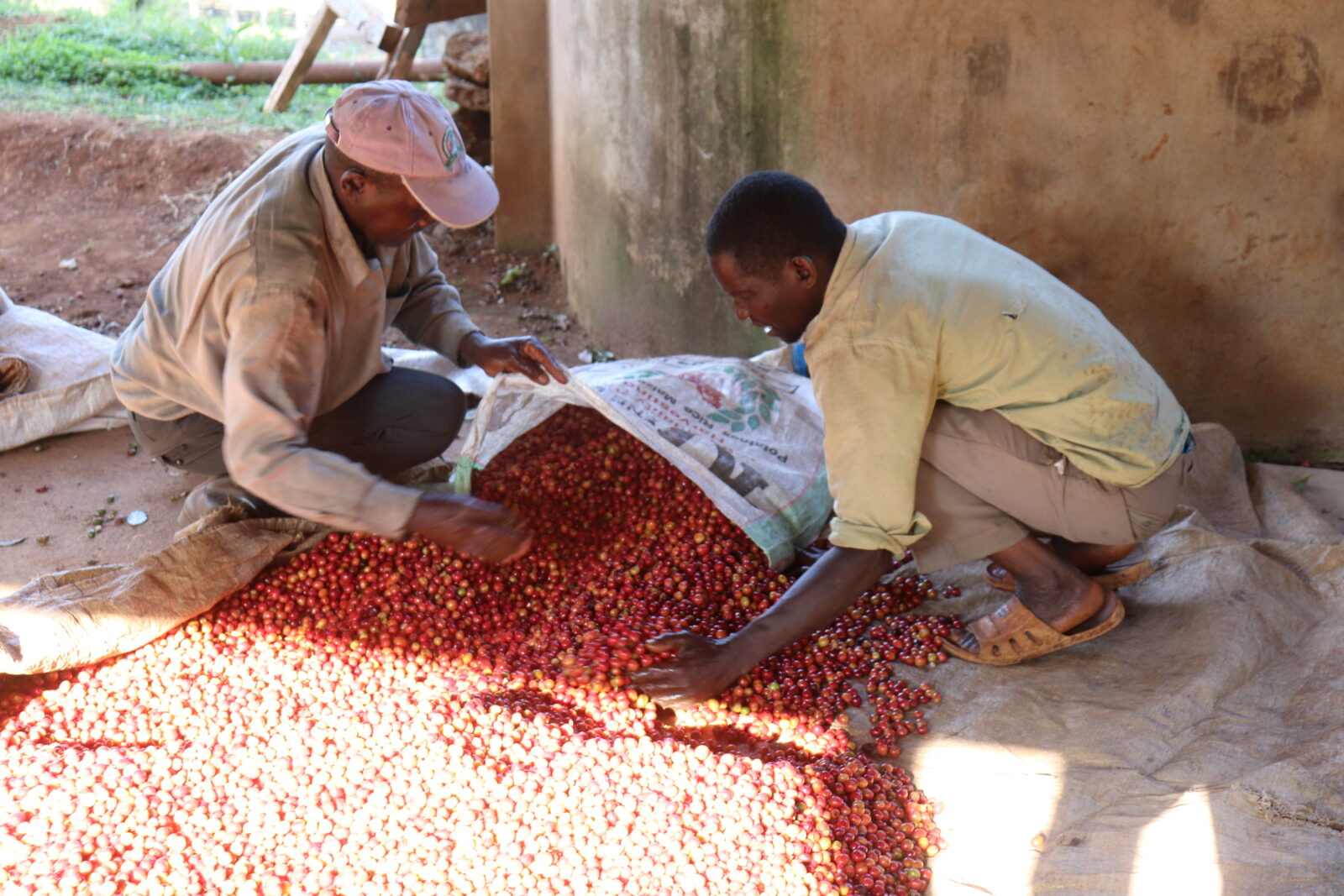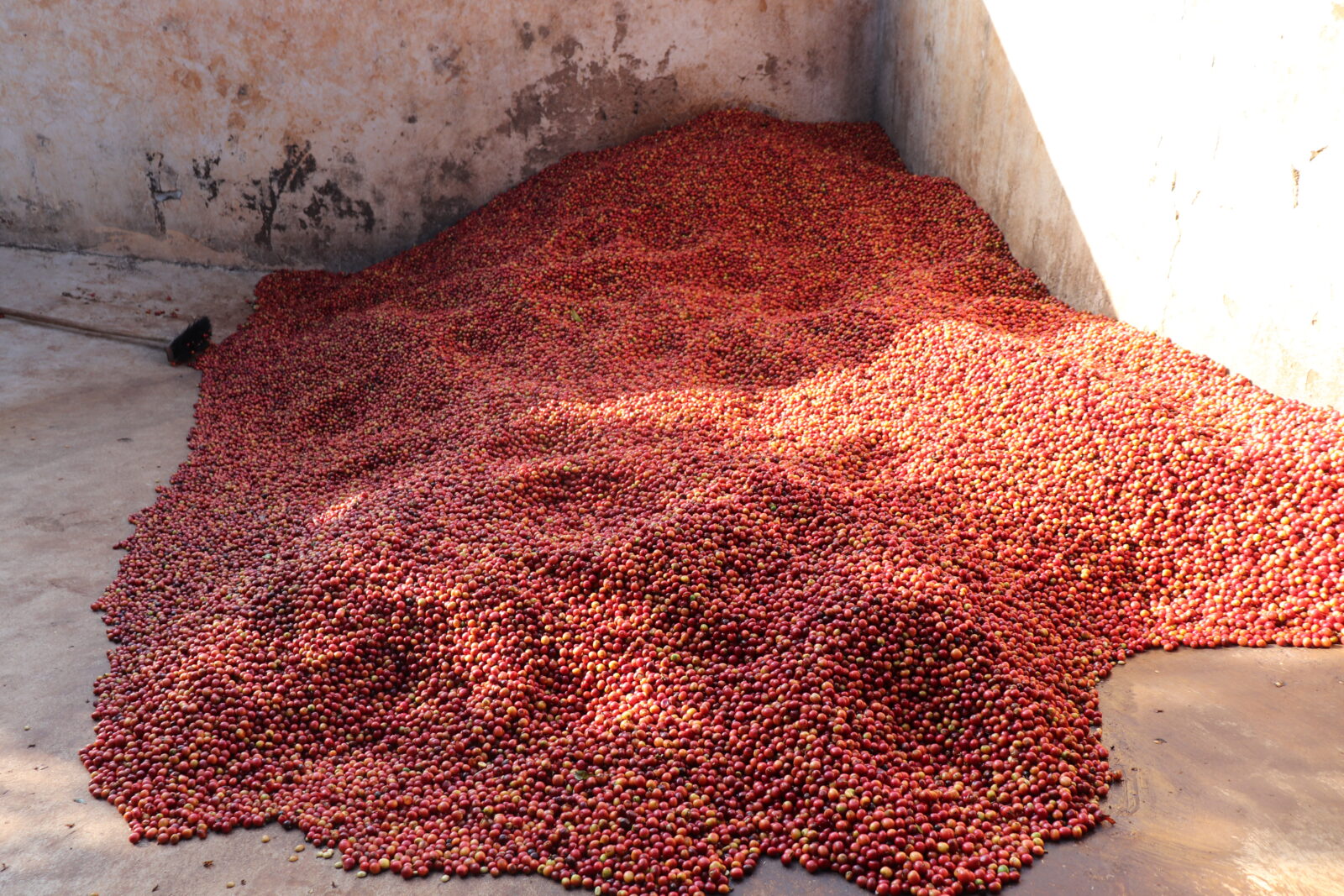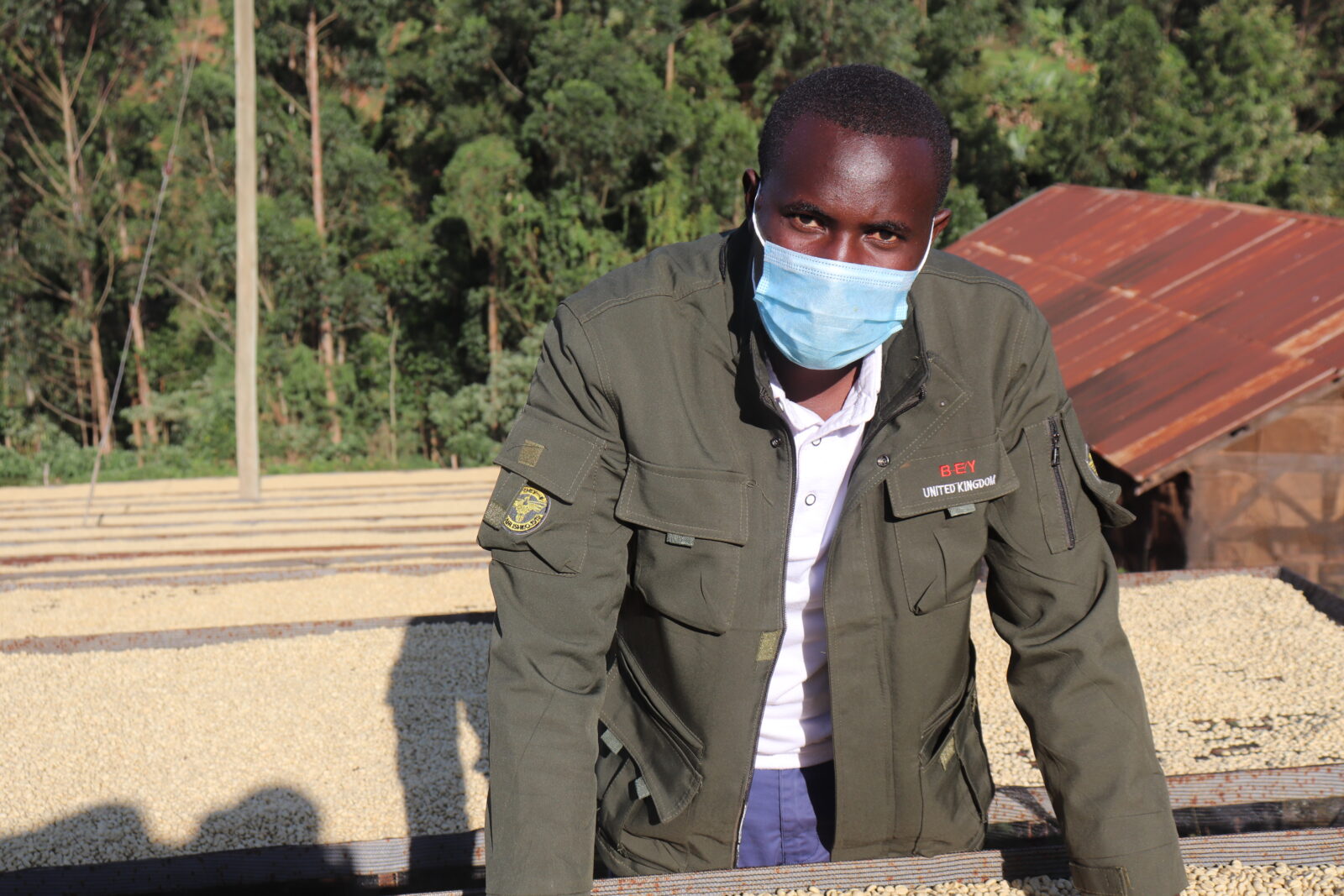Gikirima AA
Orgin Information
Elevation Ave: 1800
Farm Name: Gikirima AA
Farm Name – Gikirima Coffee Factory
County – Kirinyaga County
Coffee Varieties – SL 28,Ruiru 11,Batian
Annual Rainfall – 1900 mm
Temperature – 16-26 c
Altitude – 1800 above sea level .
Soil – Red volcanic soils
Processing Method- Washed and Sun Dried
Membership- 1,100
BACKGROUND
Gikirima factory is affiliated to Kibugu Farmers Co-operative society along with the Kathakwa, Ndunduri, Ngerwe and Gicherori factories. It is located in one of Kenya’s great coffee-growing regions, Embu County. There are now 1,100 active members of the Gikirima factory and members each have on average around 1 hectare of land for coffee growing alongside tea, macadamia, beans, banana and maize.
LOCATION
Gikirima factory is located in the Manyata division of the Embu district close to the town of Gicherori and 14km away from Embu town centre. Gikirima is situated on the slopes of Mount Kenya in the well-respected coffee growing area of central Kenya. It benefits greatly from the perfect coffee growing conditions offered. Smallholder farmers in the area plant tea, maize and bananas and gravellea, macadamia and eucalyptus for shade trees.
SOILS AND CLIMATE
The area experiences two seasons of rainfall, the long rains from March to May and the short rains from October to December. The area has deep, well drained and fertile red volcanic soil at altitudes of 1800 metres above sea level with 1900mm of rainfall annually. On average Gikirima factory will receive 1900mm of rain per year. Production cycle follows the standard timeframe with the main crop harvested October through December and fly crop harvested April through June..
PROCESSING
After picking, ripe cherry is brought to the factory by smallholder farmers, before it undergoes processing to remove the skin and pulp – known as the wet processing method. The factory is currently using a disc pulper to remove the skin and fruit from the inner parchment layer that is protecting the green coffee bean. After pulping, the coffee is fermented overnight to break down the sugars, traveling through channels to the soaking tank the coffee is carefully cleaned, soaked and spread out on the raised drying tables. Time on the drying tables depends on climate, ambient temperature and total production volume undergoing processing. Drying can take from 7 to 15 days in total. Frequent turning and sorting will happen during the drying stage. Wastewater is managed through the use of soaking pits. The water used for processing the cherry spends time in the pits to ensure that the nutrient rich water created during depulping will not be returned to the nearby water source without proper treatment. This additional step cuts down the risk of contamination, after adequate time for reabsorption the water is recirculated. Currently, Gikirima has five pits for this process. Adhering to strict quality control measures the cooperative has a field committee responsible for carrying out all activities associated with coffee production. The field committee carries out field days to visit the farmers. On such days they check on intercropping guidelines, weeding, pruning, spraying, application of fertilizer, mulching and provide technical advice. They also assist in the selection of seeds. They spend some time motivating farmers who have abandoned their coffee to continue farming.




